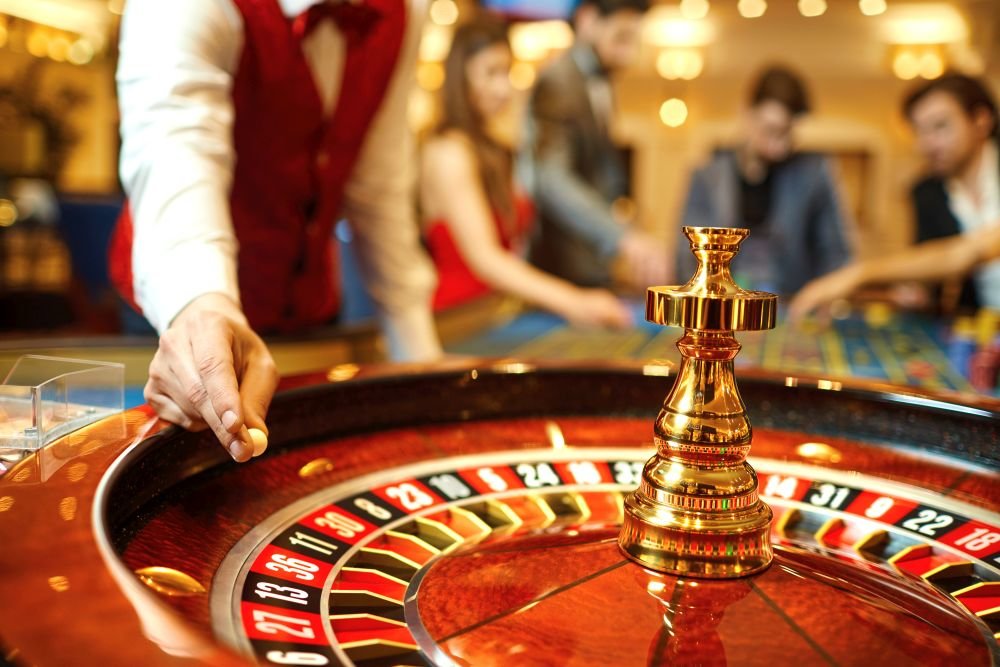
Casino games have long been a captivating form of entertainment, drawing numerous of players from different cultures around the globe. From the lively casinos of Vegas to the busy gambling halls of Macau, these games serve as a link that unites people across different backgrounds. The allure of luck, strategy, and gambling entices not only those looking to strike it rich but also those seeking a shared experience.
The influence of casino games extends far beyond the gaming floor. They often represent the cultural standards and beliefs of the societies in which they prosper. Games such as poker, pontoon, and the spinning wheel have integrated into the tapestry of mainstream culture, influencing multiple fields from movies to clothing. As we explore this fascinating intersection of chance and culture, we can better understand how casino games shape and are affected by the surrounding world.
Historical Evolution of Casino Games
The origins of gambling games can be traced back to old civilizations, where gambling in various forms was extensively engaged in. In China, around 2300 B.C., a form of lottery known as Keno was popular, while in historic Rome, soldiers would often gamble on the results of their games. The notion of using randomness for entertainment and profit progressed over the centuries, leading to the establishment of more formal games. By the final Middle Ages, betting houses started to emerge in Europe, notably in Italy, which brought forth early incarnations of famous games still practiced today.
As betting expanded fame in European regions, the 17th and 18th centuries saw the rise of gambling establishments as specialized establishments for gambling. The initial official gambling house, the Ridotto, was established in Venice in 1638, featuring activities like Baccarat and Faro games. This era marked a major turning point, as casinos started to welcome not just the wealthy but also the growing middle-tier society. The complexity of games grew, leading to the creation of new regulations and modifications that enhanced the play experience.
In the 19th century, the era of industrialization and transformations in social conventions also transformed the environment of gambling activities. The launch of roulette and modern slot machines attracted a broader audience, and gambling establishments became seen as legitimate forms of fun. This era witnessed the worldwide proliferation of gaming, as casinos expanded from the continent to the Western Hemisphere, culminating in the creation of the iconic Las Vegas Boulevard in the 20th century. The evolution of gambling activities has continued into the present day, integrating new technologies and digital sites, making them available to a global population.
### Cultural Relevance in Diverse Cultures
Casino games have deep-rooted cultural significance within numerous communities around the globe. For instance, in Las Vegas, the very essence of the urban landscape is woven around gambling establishments, where playing is not just a pastime but a central aspect of social engagement and social interaction. The bright lights and dynamic atmosphere attract countless individuals, showcasing how games of chance can influence local economical structures and cultural identities. This surrounding transforms the notion of recreation into an immersive experience that shapes fashion, melodies, and even cinema.
Conversely, some societies approach wagering with greater care, considering it through the lens of ethical beliefs and customs. For instance, in various Asian societies, games like Mahjongg and Pai Gow Poker are steeped in history and possess significant social relevance. These games are often played during get-togethers and occasions, fostering social ties and strengthening familial ties. The act of playing these games goes above mere entertainment, reflecting values such as respect for elders and the significance of collective enjoyment.
At the same time, in continental countries such as the principality of Monaco and Italy, games of chance serve as symbols of wealth and sophistication. The elegant atmosphere of these locations attracts both visitors and residents, upholding a sense of prestige and elitism. The art of Texas Hold’em and the strategic elements of games like banker’s game are appreciated, molding social dynamics and cultivating an attraction that fascinates a varied audience. This emphasizes how casino games can simultaneously mirror and mold cultural attitudes towards hazard, benefit, and relationship building.
Financial Influence and Travel Industry
Casino games play a crucial role in the economic landscape of many regions, particularly those that depend significantly on tourism. The revenue produced from casino operations fuels local financial systems, creating employment opportunities not only within the casinos but also but also in connected industries such as hospitality, restaurant services, and entertainment. This influx of tourists, drawn by the allure of gambling and the overall gaming environment, stimulates expenditure across multiple local enterprises, contributing to the economic health of the area.
The presence of casinos often leads to the construction of infrastructure, including hotels, transportation systems, and leisure amenities. These developments are essential in improving the overall tourist experience, making destinations more appealing to tourists. Additionally, many casinos invest in local communities through sponsorship of events and charitable activities, further integrating themselves into the community structure of the locality. casino ohne OASIS Such investment not only supports economic growth but also cultivates a positive image of the casino industry.
In addition, the global popularity of casino games drives competitive tourism, with regions vying to attract gamblers from across the globe. Iconic locations like Las Vegas and Macau have become synonymous with casino culture, drawing millions each year. This advantage encourages innovation and diversification within the gambling sector, influencing developments in entertainment and hospitality that extend beyond their limits. The ripple effects of this tourism extend wide, impacting local economies and cultural exchanges on a worldwide scale.
